Podcast (tihe_podcast):
Play in new window | Download | Transcript
Subscribe: Apple Podcasts | Spotify | RSS | How do I listen to a podcast?
Will Hennessy shares about fostering neurodivergent learners’ growth on episode 499 of the Teaching in Higher Ed podcast.
Quotes from the episode
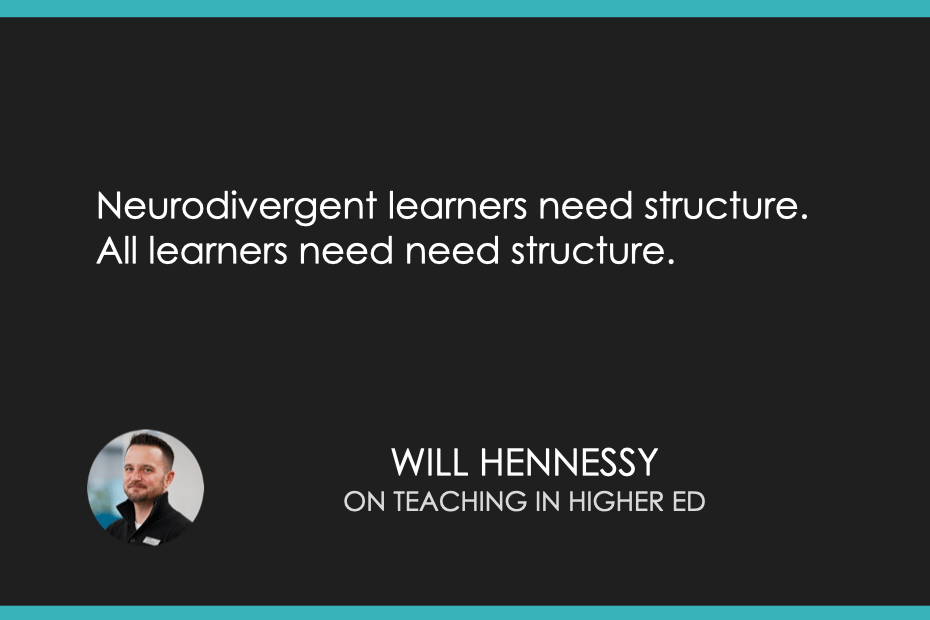
Tourette syndrome is a neurological disorder characterized by involuntary, internal and external tics that occur repeatedly in the same way. OCD is a neurological disorder that causes problems with information processing.
-Will Hennessy
I honestly thought that I just wasn't as smart as my peers, that I just needed to try harder, or that one day, I guess, it would just kinda all click in my brain. Now, obviously, I know that's not the case now, but that's kind of where I was at.
-Will Hennessy
I want to create inclusive learning environments for neurodivergent learners and introverts, students like me.
-Will Hennessy
Structure is incredibly important for neurodivergent learners. Even though we're implementing flexibility and choice, it doesn't necessarily mean that it has to be a free for all where students can just do whatever they want, that could actually hinder learning.
-Will Hennessy
Neurodivergent learners need structure. All learners need need structure.
-Will Hennessy
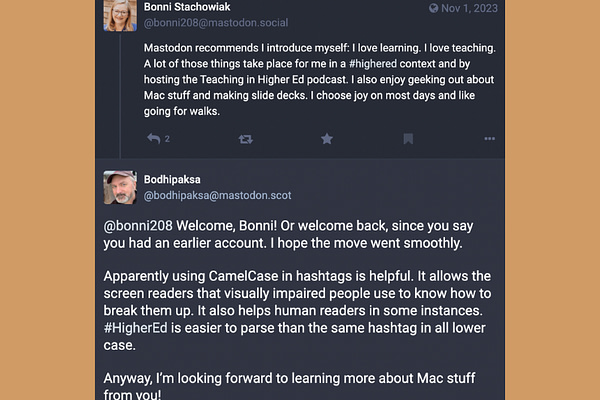
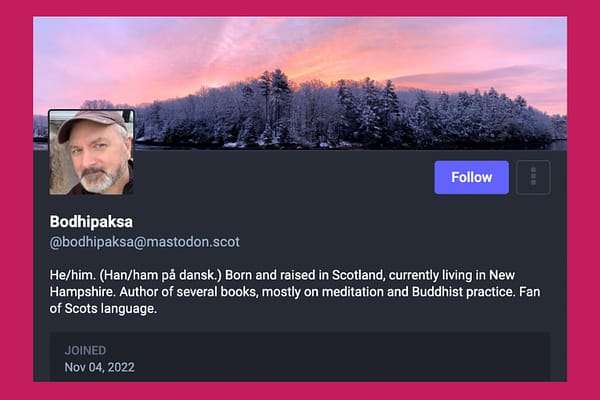
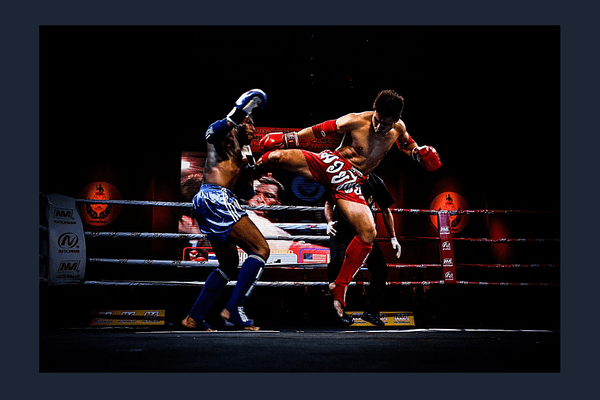
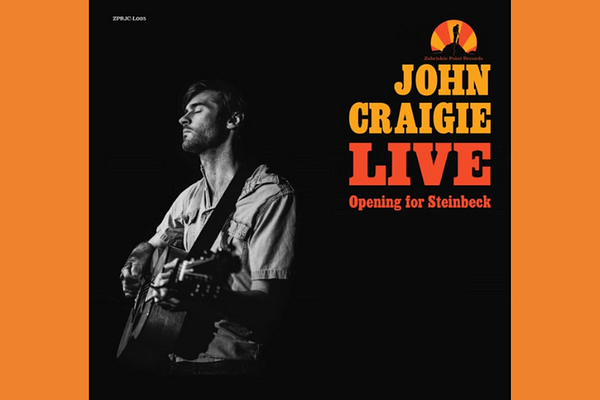


Your audience may be interested in a set of AI tools called goblin.tools (URL: goblin.tools). From the About page: “goblin.tools is a collection of small, simple, single-task tools, mostly designed to help neurodivergent people with tasks they find overwhelming or difficult.
Most tools will use AI technologies in the back-end to achieve their goals. Currently this includes OpenAI’s models. As the tools and backend improve, the intent is to include ethical alternatives.”